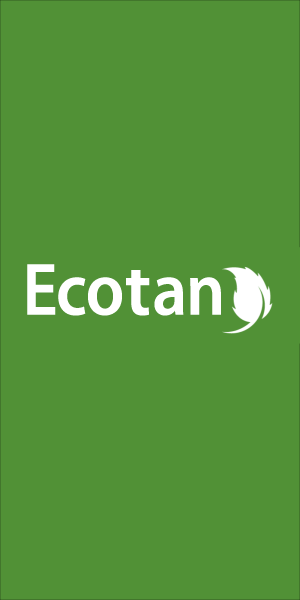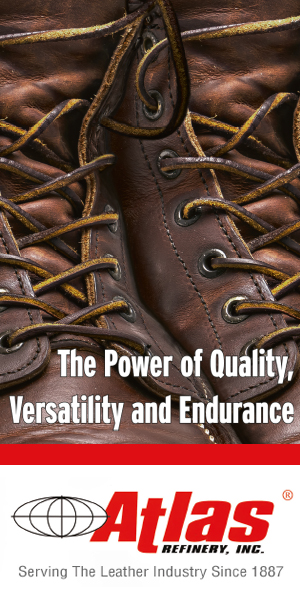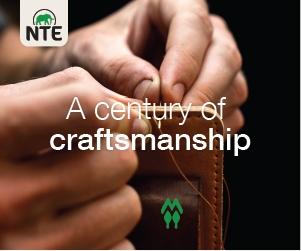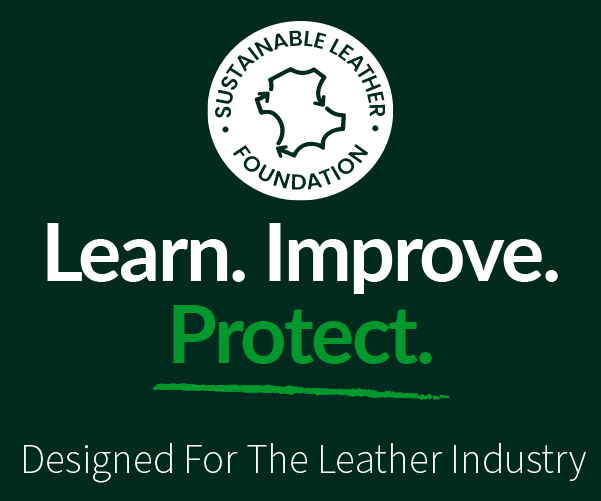Still no solution to plastic pollution

An intergovernmental committee has failed, once again, to agree a treaty on ending plastic pollution. A consumer backlash seems inevitable. In response, leather has a chance to become the material of choice for more of the world’s citizens.
More than three years after the United Nations formally adopted UN Environment Assembly (UNEA) resolution 5/14, efforts to put in place a legally binding instrument for putting the resolution into effect have failed time and again. The resolution is a commitment to bring to an end what the UN openly calls the “global plastic pollution crisis”.
This matters to the global leather industry. Most of the synthetic materials that brands consider as alternatives to leather contain large quantities of plastic. If these brands tell consumers the truth, that in most cases their only aim is to save costs, they should face a backlash for trying to make financial gain from making the plastic crisis worse. If they go down the path of claiming their choice is for environmental reasons, UNEA 5/14 and the lengthy discussions it has engendered should hole their arguments below the water line.
Demand for tools
Following the much-celebrated agreement on UNEA 5/14 in March 2022, the UN wasted no time in setting up an intergovernmental negotiating committee (INC) to draw up a formal treaty for addressing the plastic problem, including in the marine environment. It convened in November that year in Uruguay, met again in Paris in May and June 2023, then in Kenya in November 2023, in Canada in April 2024, and then for the fifth time in Busan, South Korea, in November and December 2024. The committee’s work has been to try to put the tools in place to make the resolution a reality. This can only happen if all the travel and all the talking deliver a binding instrument for fixing the situation.
The fifth session in Busan lasted a week. Member states were confident a treaty would emerge at the end of that event. They were, unable, to come to an agreement and the UN suspended the session. It said negotiations would continue in 2025. After Busan, the European Union accused some UN member states, including Saudi Arabia, Russia and Iran of obstructing a deal. It called on those countries “to show more ambition”.
Ambition is a key word in this INC’s circles. A group of more than 100 countries have formed a self-styled High Ambition Coalition. It is they who expect and demand the treaty that emerges to be far-reaching in meeting the promises of UNEA 5/14. This will mean hard-hitting measures covering the full lifecycle of plastics, unsustainable consumption and production of plastics, and the presence of chemicals of concern in the composition of plastic products. “These are outcomes that science clearly tells us are necessary,” the delegation from Norway stated recently. Other key areas of debate include funding, technology transfer and the scope of how far the treaty will go and to which government or authority it will assign responsibility for remedial action, including in international waters.
In comments she made after Busan, EU Commissioner for the environment, Jessika Roswall, quoted forecasts that suggest that, if plastic production, plastic use and disposal continue as they are at the moment, the volume of plastic leaking into the environment will triple by 2060. She says half of all plastic waste is still going to landfill and that less than 20% of it is being recycled. “A decisive response to the global pollution crisis is needed,” she said.
Drowning in plastic pollution
The UN’s own Environment Programme (UNEP), that is responsible for convening and supporting the INC, has been no less graphic in its assessment of the situation. Its director general, Inger Andersen, says: “Plastic pollution is already in nature, in our oceans and even in our bodies. And plastic leakage to the environment is predicted to grow by 50% by 2040. If we continue on the current trajectory the world will be drowning in plastic pollution with massive consequences for planetary, economic and human health.” For added detail, Kenya’s delegation says there are 7 billion tonnes of plastic waste circulating in the environment and 430 million new plastic products being manufactured each year, while many countries still have no “proper take-back schemes”. Weighing into the debate on social media, France’s president, Emmanuel Macron, pointed out that every minute, 15 tonnes of plastic end up in our oceans.
According to Inger Andersen, the disappointment of Busan prompted “a surge in diplomacy”, which made her optimistic about reaching an agreement at a follow-up event in August 2025. The negotiating committee met formally at the UN’s Palais de Paix building in Geneva and resumed talks for a further ten days. The UN called the Geneva meeting the decisive second part of the fifth session, or INC 5.2. Busan was to be conclusive; rather than say it hadn’t been, the committee seemed to prefer to present Geneva as a continuation. Delegates from 185 countries duly travelled once more.
They were left in no doubt about the urgency of completing the task in hand this time. On the opening day, Ms Andersen, told them: “I remind you that the world wants and needs us to tackle the plastic pollution crisis. People are outraged, they are worried, and rightly so. It is now high time for member states to get the deal over the line.”
Multilateralism struggles to survive
However, to watch and listen to the proceedings at INC 5.2 was to understand why multilateralism is rumoured, in some quarters, to be in danger. There were four plenary sessions, one of which, at 20 minutes to midnight on what was supposed to be the final day, August 14, lasted only 40 seconds. The closing plenary resumed at 5.30 the following morning. Delegates had been working in smaller groups throughout the ten days and nights, but were unable to agree definitive text for more than a few of the 32 articles that were in a draft treaty they had brought from Busan.
By the evening of August 13, signs of fatigue and frustration were much more in evidence than any hint of a breakthrough. The INC chair, Ecuadorean diplomat Luis Vayas Valdivieso, took it upon himself to present a new draft of the report an hour before that day’s plenary session. He explained that his intention was not to impose anything on delegates, but to offer them versions of the articles that he and his team had compiled after listening to and consulting with delegates for more than a week. “It is for you to mould and improve,” he said.
Weak ambition
Delegates spent the rest of INC 5.2 trying to carry out this moulding and improving of Mr Vayas’s first draft, leading, in the wee, small hours of August 15, to an amended second draft from the chair’s pen. Any assumption or hope that a treaty could be crafted from either version of his versions of the text proved unfounded.
To loud applause, the delegation from Colombia said the first draft was “totally unacceptable”, insisting that there was no scope for turning it into a formal UN treaty. Colleagues from Chile said that even a quick reading of that first draft showed “enormous gaps” and a lack of tools that member states would be able to use genuinely to combat plastic pollution. The head of the delegation from Panama, Juan Carlos Monterrey, picked up the theme, but laid aside diplomatic language. He said: “What we have on the table now does not work for the majority of the people in this room. The red lines of the majority here have been stamped on, spat on and burned. This is simply repulsive. This is not ambition, it is surrender.” Perhaps inspired by the forthrightness of this, Emmanuel Macron took to social media once again to describe this first draft as presenting “weak ambition” and being “simply unacceptable”.
Scope for improvement
On the other side of the debate, delegations from Kuwait, Bahrain, India, Saudi Arabia, Indonesia, Qatar, Malaysia, Iraq, Iran, Algeria and others also complained about the first Vayas draft, saying red lines of theirs had been crossed, too, although they certainly seemed more comfortable with the chair’s revisions than their High Ambition Coalition counterparts. “We see some improvements and progress in the new text,” Iran said. “But setting out the scope of the treaty more clearly is of great importance.”
Kuwait said it and like-minded countries had been calling for this clarification on the scope of the treaty for a long time. Qatar backed this up, saying: “It would be difficult for us to pursue obligations if we do not know what we would be signing up to.” On the same theme, Indonesia said: “A well defined scope is not only a practical necessity but also a moral imperative to deliver an equitable and effective treaty capable of ending plastic pollution and safeguarding our planet for future generations.”
Midnight’s diplomats
On reconvening the final plenary session in the early hours of August 15, Luis Vayas Valdivieso said he and his team had tried to take all of these points of view into consideration in working on the second draft. “Differences remain, but we have made good progress,” he said. “This is my best attempt at capturing the spectrum of views and moving us closer to the tools we need [to fulfil the UNEA 5/14 mandate]. But there will be no further action at this stage.”
If further INC gatherings are to take place, delegates from countries that produce large volumes of petroleum and plastic made it clear that they did not want Mr Vayas’s texts to be the basis of further negotiations. “There were rejections of the first draft because of a lack of balance,” Saudi Arabia said. “That lack of balance continues in the second draft.” India insisted that the record should show clearly that there was no consensus on either draft. Qatar agreed. Kuwait expressed dismay at the extent to which the two versions of the text Mr Vayas had produced had veered away from its (Kuwait’s) interpretation of the mandate. Its head of delegation commented: “The further the text departs from the mandate, the more appealing it seems to some. This is a deeply concerning trend.”
Some, including Uganda, argued that the work of the smaller groups on the different articles of the Busan draft treaty could be of help in the future, but the INC process appeared to have moved forward very little as delegates made their way to Geneva airport.
Insufficient progress
Jessika Roswall was in the room and addressed the plenary on behalf of all 27 EU member states. She said she thought there had been some progress, although not enough. She also said she thought Luis Vayas’s second draft still fell short of the EU’s demands on a number of points, but that it, and the other outcomes from Geneva, could serve as a good basis for INC 5.3, if there is one.
She made it clear that her hopes about securing a treaty in Geneva had been sincere. “We cannot hide that we had higher expectations,” she said. “We came to conclude a global plastics treaty here in Geneva. We have confidence in the science that impels us, confidence in the people that push us and confidence that a majority of countries are aligned on this.”
The EU Commissioner for the environment said she was also sure a majority of people in business and civil society want a globally binding treaty for the sake of a clean, competitive, circular economy and public health and wellbeing. “That is what we fought for,” she concluded. “We have not managed to get there.”
At the end, the delegation from Palau spoke on behalf of the 39 small island developing states to express disappointment. “We continue to invest precious resources and personnel in the INC process, yet repeatedly return home with insufficient progress to show our people,” the head of delegation said. She added that the longed-for treaty should deliver action genuinely to end plastic pollution “in the interest of protecting our precious marine environments, our livelihoods, and the health of our people and of our future generations”.
After the plenary, a fatigued and frustrated Inger Andersen addressed the media. She said: “We did not get to where we wanted, but UNEP will continue to engage in the multilateral process and also to engage at the ground level with member states. This work will not stop, because plastic pollution will not stop.”
Better choices
Presenting leather as a good alternative for brands and consumers to choose if they want to contribute less to the plastic pollution crisis is far from new. Germany’s national leather federation, VDL, said in a newsletter in 2022 that concerns about microplastics should convince consumers to choose leather instead.
Microplastics are shed from clothing and shoes made from synthetic materials, it explained. Tiny particles are ingested by marine life and are now so ubiquitous that they have been found in the bloodstream of healthy humans.
The most common sources of microplastic pollution are polypropylene (PP) in packaging materials and polyethylene terephthalate (PET) used in the manufacture of bottles. Other synthetics in common use are polyurethane (PU) or polyvinyl chloride (PVC), frequently used in the manufacture of footwear and clothing. All are derived from fossil fuels and are often disguised as vegan materials or eco-materials so as to invite consumers to think they are “sustainable”. It is also common, as we know, for materials manufacturers and brands to misuse the term ‘leather’ when presenting products made from these plastics.
Leather products are free of microplastics, VDL pointed out, so when consumers buy items made from leather, they are helping to preserve the environment from plastic.
In some applications, there will always be demand for plastic. Managing partner at tanning technology developer Wet-green, Thomas Lamparter, says, for example, that he will always want his dentist to wear plastic gloves. But exasperated by the news from Geneva, Mr Lampater has raised his voice to renew the request that brands take seriously the public’s antipathy towards plastic.
“It doesn’t have to be leather,” he says. “But when you choose a material, ask the right questions. Can it be repaired? Is it biodegradable? Is it truly circular? If we cannot answer ‘yes’ to those questions, how will we explain to our children that we could have done better but chose not to?”
Plastic on the beach of Ngeruangel Reef, north of Palau. The small island developing states in Micronesia are tired of investing time, people and money in helping the UN find a genuine solution to plastic pollution, only to return home each time with practically nothing to show their people.
Credit: Shutterstock/Hiromi Ito Ame































